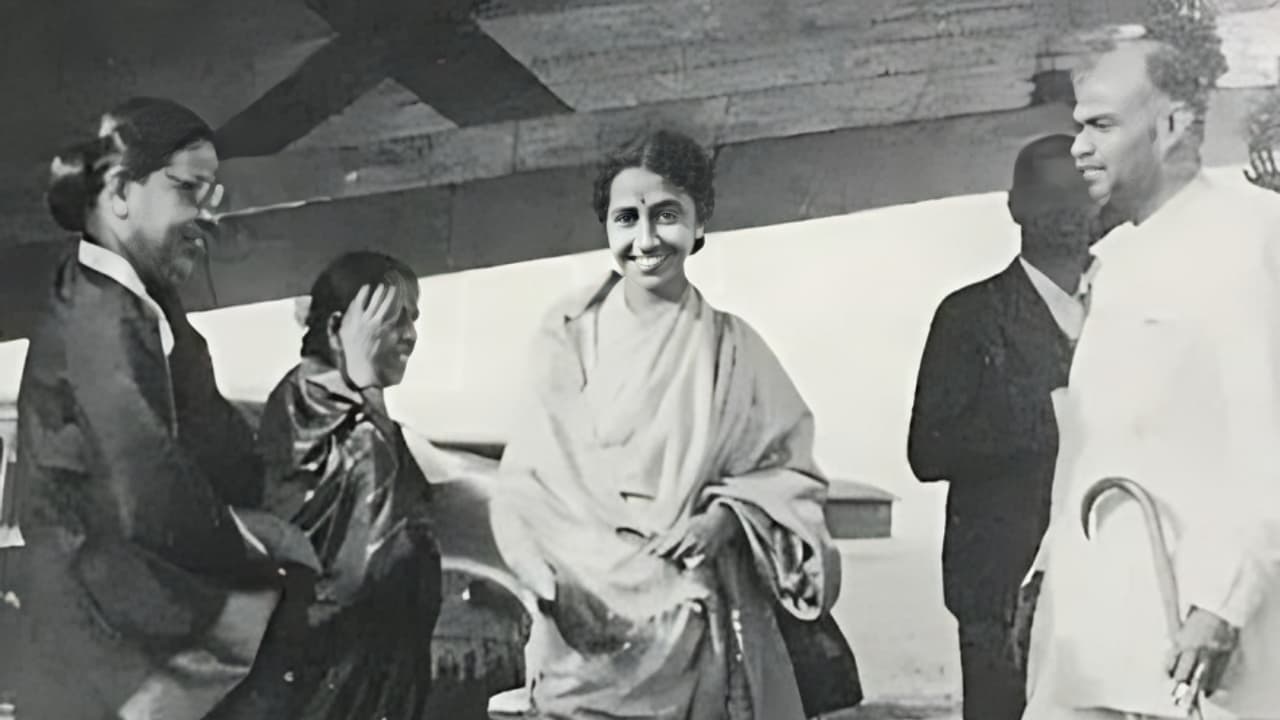Usha Sundaram, India’s first woman pilot after Independence, flew daring missions to rescue Indians stranded during Partition. She co-piloted dignitaries like Nehru and Patel, broke records, and paved the way for women in aviation.
When India became independent in 1947, women in cockpits were unheard of. But Usha Sundaram, in her early twenties, defied norms and soared above them, quite literally. She became the first Indian woman to fly after Independence, co-piloting rescue flights, historic political missions, and even setting a world aviation record that still stands.

Breaking barriers with the Dove
In 1950, the Government of Madras decided to purchase a de Havilland Dove, a British twin-engine marvel praised for its performance and safety. Usha and her husband V Sundaram, both trained pilots, were tasked with ferrying the plane from London to Bombay. They completed the journey in just 27 hours, flying via Paris, Baghdad, and Karachi. It set a world record for piston-engined Dove aircraft, one that remains unbeaten.
In 1951, Usha Sundaram and her husband set a speed record for piloting a piston-engine aircraft between England and India, completing the journey in just 27 hours. Commissioned by the Government of Madras to bring back a newly purchased De Havilland Dove, the couple travelled to England by ship and flew the aircraft back with stopovers in Paris, Baghdad, Karachi, and Bombay, before reaching Madras. This world record for a piston-engined Dove flight remained unbroken as of 2020.
Learning to fly, and making history
Usha first learned to fly soon after marrying V Sundaram in 1941, who was already an instructor at the Madras Flying Club. At the time, licensing norms allowed her to be a co-pilot without formal certification. Her learning curve was steep and swift. By 1949, she became the first student, thus, the first woman, to graduate from the Government Flying Training School (GFTS) in Jakkur, Bengaluru.
Pilots of the powerful
The Sundarams were soon chosen as personal pilots to the Maharaja of Mysore, flying his Dakota DC-3 aircraft. They ferried key leaders of the freedom movement, including Pandit Jawaharlal Nehru, Sardar Vallabhbhai Patel, and Dr Rajendra Prasad.
In particular, their role was crucial during Patel’s mission to integrate princely states into the Indian Union. Usha, often co-piloting with her husband, flew to strategic locations across India and even into Pakistan, making her a silent but essential figure in India’s unification.
Her youngest son, Chinny Krishna, recalls, “The leaders preferred flying with my parents because the Maharaja’s aircraft had an all-Indian crew, unlike other carriers that employed mostly Americans or British.”
Flying home Partition’s stranded citizens
Among her most heroic contributions was flying rescue missions during and after Partition. Usha flew Indian citizens stranded in Pakistan back to safety, often during volatile and tense times. These flights were risky, especially with the aircraft’s unreliable cabin pressurisation, forcing her to fly low and navigate turbulent weather with skill.
On some of these flights, she flew solo with key figures like Nehru and Prasad on board. Her piloting left a lasting impression on the country’s top leadership.
Quiet exit from the skies and a lasting legacy on the ground
By 1952, Usha retired from professional flying to raise her three children. However, she and her husband continued to fly recreationally. In 1959, they founded Blue Cross India, now one of the country’s largest animal welfare organisations, headquartered in Chennai.
Speaking in 2001 in Bengaluru, Usha recounted her aviation days and gave a message to future generations: “There should be no gender bias in the field of aviation. A woman’s ability with aircraft is at par with a man’s.”
Even after retiring from professional flying, the Sundarams continued to fly recreationally until 1996. In 1959, Usha co-founded the Blue Cross of India, one of the country’s oldest animal welfare organisations, which began at their home and was formally incorporated in 1964. She passed away in Chennai on April 6, 2010, at the age of 86, leaving behind a legacy of courage, compassion, and quiet heroism.
A trailblazer for generations of women pilots
Today, 15% of India’s pilots are women, three times the global average. Much of this progress can be traced back to pioneers like Usha Sundaram, who flew in a time when women weren’t expected to do much more than stay grounded.
Her story remains one of courage, skill, and quiet heroism, a tale from India’s skies that deserves to be retold.


